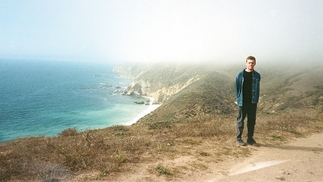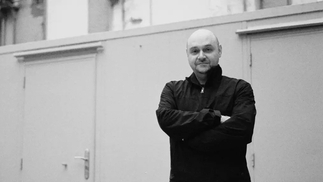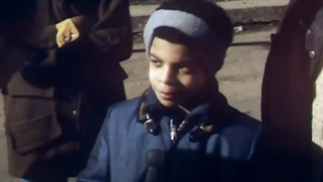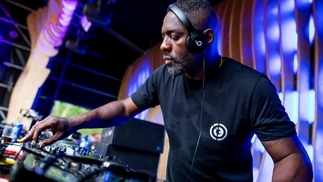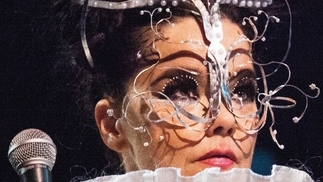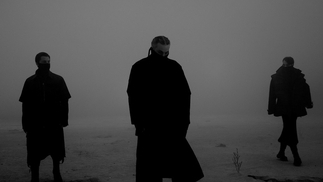Q&A: WALLS
DJ Mag talks to Sam and Alessio about the pros and cons of not fitting in, how EDM has changed the musical landscape, and their next series of projects...
As electro noiseniks Crystal Castles recently proved, a band’s life rarely ends well. Whether through in-fighting, complacency or just diminishing public enthusiasm, the end result is often a mess.
Still, a few artists do get to leave their reputations and relationships intact. James Murphy managed it with LCD Soundsystem, the KLF went out in a spectacular blaze of glory (and dead sheep) and now Walls, the British/Italian duo of Sam Willis and Alessio Natalizia have elected to consciously uncouple, bowing out gracefully with the release of their third and final album.
So five years on from the Krautrock-influenced ambient drones and tones of their debut self-titled album we have ‘Urals’, the band’s last will and testament.
Released on their own Ecstatic imprint which, also home to the likes of Gavin Russom, L/F/D/M, Pye Corner Audio and Natalizia's own Not Waving solo project, ‘Urals’ presents a darker, at times more dancefloor focused incarnation of a band whose previous albums were a perfect soundtrack to gently drifting away.
If the Motorik sounds of bands like NEU! and Can subtly underpinned their opening salvo, Urals’s seven tracks belie a similarly Teutonic influence, though one that nods more to the early ‘90s trance sound of Frankfurt rather than '70s Cologne.
Tracks like ‘Moon Eye’ build to a satisfyingly raucous conclusion, as writhing distorted synthesizers dual for attention, whilst the Jamie xx-championed ‘I Can’t Give You Anything But Love’ provides one answer to the rarely-asked question of what Fuck Buttons may have sounded like had they been signed to Harthouse back in the day.
Of course it’s not all thumping four-to-the-floor beats: this is a Walls album after all, a band who once provided a soundtrack for a floatation tank centre, and on tracks like ‘Voluta’ Natalizia’s sublime guitar seems to float serenely above the diaphanous noise below, whilst the stately seven-and-a-half minute beatless closer ‘Radiance’ provides an elegiac coda to the band’s career.
So with ‘Urals’ in the shops now we caught up with Willis and Natalizia to look back over their career and forward to life after Walls...
So here we are at the end of the road, at what point did you know that this would be your final record together?
Sam Willis: “It was really only when we had finished the album that we decided it would be the final record we’d make together. For both Alessio and I it felt like the music we made as Walls had a specific feel and atmosphere that we’d just kind of exhausted...
rather than hedge our bets and see if we’d feel more inspired in the future, we felt it was best to call it a day and leave it as an album trilogy. Looking back, the three records work quite well in that context.”
This album certainly feels angrier and darker than ‘Walls’ or ‘Coracle’, was that intentional?
Sam: “Yeah for sure, we definitely made a conscious decision to make the music a bit more aggressive and less dreamlike. I think that’s partly to do with getting older, jaded and perhaps a bit wiser too.
Also I’ve had a child and moved out of London, Alessio bought a house, our personal lives have changed substantially from what they were around the making of the first two records, which happened pretty much back-to-back.”
Musically too, the past five years have seen electronic music explode in a way that few expected. As an act that falls more into the credible and respected bracket than the festival headlining EDM one, did this benefit you?
Sam: “It’s really hard to say. We never got into this as a means of making money first and foremost, so the idea that more people around the world are potentially interested/listening to our stuff is definitely a good thing.
As for EDM directly benefitting us, no, not really. As you say we just don’t fit into that sort of bracket, so from a point of view of playing shows, or doing remixes/getting exposure, yeah, pretty much zilch!”
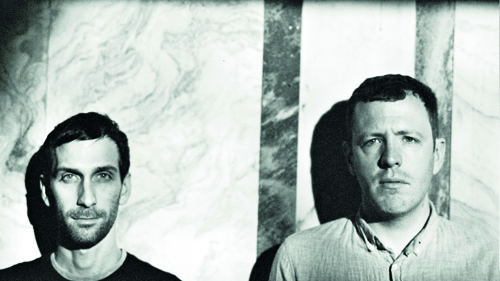
Do you think that ultimately it’s been good for ‘electronic music’ though?
Sam: “It’s impossible to say right now, it’s a great time to be alive if you’re interested in challenging culture, whether that be television, film, music, literature, there’s more content than we could possible consume in a hundred lifetimes.
But for me, personally, I feel that American popular music was much more interesting when it wasn’t directly influenced by ‘dance music’. It meant that you got incredible, weird records like ‘Bombs Over Baghdad’ or ‘Get Ur Freak On’ which as I understand it were inspired by drum & bass/jungle — genuinely memorable and challenging music.
Right now it feels that a lot of the current music is just very disposable and simplistic. Still, a lot of this stuff goes in cycles, so hopefully it will swing back around again. Though a part of me has this horrible feeling that we’re living in the beginning section of Mike Judge’s painfully hilarious future satire Idiocracy.”
Alessio: “I think the last few years have been great for electronic music but not just because electronic music is more popular, I listen to everything from classical through to industrial noise, but a lot of guitar music has lost something that it used to have.
Still, anyone can make electronic music these days and I think that’s a positive thing. There’s a lot of shit around but overall it’s a good thing.”
How do you feel a band like Walls fits into the current electronic music scene?
Sam: “Whilst we did benefit hugely in many ways by being signed to them, we never really fitted into the Kompakt model, as we’ve never got booked in any of the venues that Michael Mayer or Superpitcher play in.
That was part of the reason that we set up Ecstatic Recordings — so that we could build our own context, leaving the old one behind.”
With you moving out of London, how much of the music was written together? Do you sit around bouncing ideas off each other, or do you work alone and go back and forth adding parts as you go?
Sam: “Bits and pieces really, the percentage of authorship varies from track to track. We definitely bounce ideas back and forth and ultimately each of us has power of veto if one of us has an idea that the other’s not keen on or feels like it doesn’t fit so well.
Generally we tend to be pretty much in agreement on things though. With all the albums we’ve done quite a bit of work apart, I actually think that’s quite important, as it means you can really get lost in the act of creation and then bring the fruits of your labour back to the other guy for feedback, amendments, additions.”
How has working with each other changed the way that you approach your own solo work?
Sam: “For me, working with Alessio has been incredibly inspiring, it’s been invaluable to have a trusted musical partner to share ideas with, to moan about the bad stuff and celebrate the good times.
Most of all, his dogged determination to act honourably in a dishonourable world and to stick to his creative guns in whatever situation has definitely given me a great example to follow.”
Alessio: “I think it’s hard to answer. I love working with Sam. There are so many things I’ve learned from him on a technical level. If I’m using a computer he’s the guy I’ll call ‘Please explain how to do this!’ But working together hasn’t really changed how I do things, I’m pretty selfish! If I’m happy, then I’m happy.”
In an early interview you said “I still don't know anything about laptops compared to Sam”. Five years on how are your laptop skills working out?
Alessio: “Ha, I’m still pretty much a learner on the laptop side. Sam and I, we’re very different. He’s very technical; he can be on the same program for ages, but that’s not for me, so it’s great to work with him! I’ve improved a bit but I do prefer to work with things I can touch and ‘play’, drum machines, synthesisers, things like that.”
Looking back, what have been the highlights and lowlights of being in Walls?
Sam: “Highlights, Touring North America with Battles, having people come up to us telling us how much they’ve enjoyed our stuff. The lowlights, probably dealing with shitty music industry people (names removed to protect the guilty) and just the financial realities of trying to make a living as an artist in 2015.”
Alessio: “For me there are so many highlights, but just in the early days getting in a room together and randomly coming up with some of the best songs we’ve ever done, I really remember those times.
“Like Sam says, the low moments were dealing with the music business, but I feel like I’ve learned so much from this experience, you have to be strong to get through it. Just having the wrong people around you, you always feel like you can do it better, so that’s why we set up the label.”
Have you tied up all the loose ends with this album, or is there any unfinished Walls business? What comes next?
Sam: “This feels like it for now, as we said, this is the final Walls album as far as we’re concerned. Though Alessio and I do have unfinished business in regards to our label, and also potentially working together on other projects in the future.
After this I have a release in June as Primitive World on the label I help run with Matt Didemus (DIVA/Junior Boys) called Obsession Recordings and I’m currently working on some new material for an Ecstatic cassette release, that will also be under the Primitive World name.”
Alessio: “Oh I’m sure Sam and I will make music together again, but maybe in different ways to Walls. Apart from that I have my Not Waving project which I’m having a lot of fun with.
That’s me going back, musically, to where I came from, just doing the music I like and what I want. So I have an album coming up on Diagonal and I’m working on a collaboration with Colin Potter from Nurse With Wound and then we’ll see what happens. But I’m sure me and Sam will do something together again at some point.”
Walls ‘Urals’ is out now on Ecstatic Recordings
words: JOHN POWER
